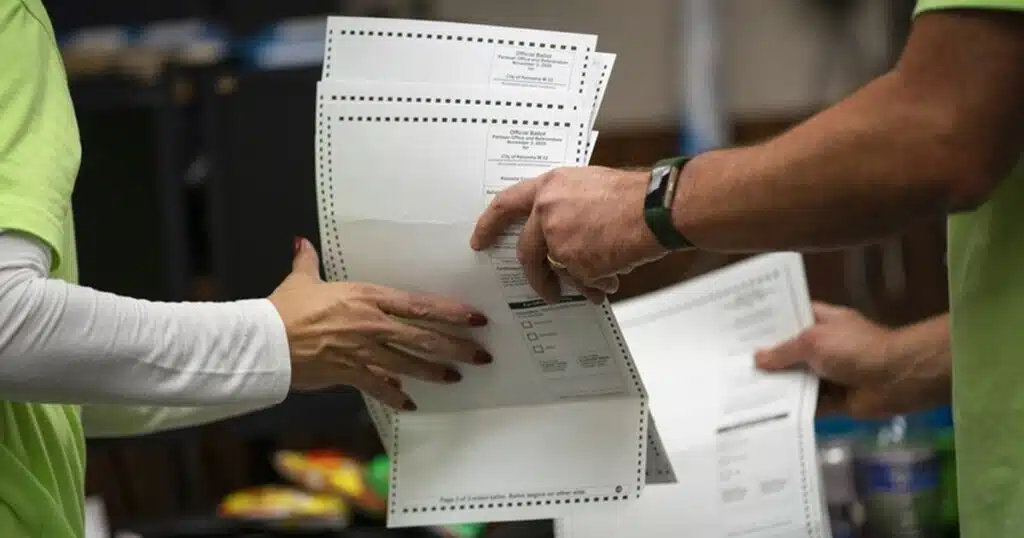
Two Wisconsin Court Rulings Deny Changes to Absentee Ballot Requirements
A Wisconsin appeals court and circuit court judge have shot down two lawsuits backed by liberals seeking orders that would allow local election clerks to resume their six-year practice of accepting absentee ballots that contain only partial addresses of witnesses.
The rulings have been issued within days of the Nov. 8 midterm election, while as many as 503,000 absentee ballots have already been either returned or cast in person in the state
Both Democratic Gov. Tony Evers and Republican U.S. Sen. Ron Johnson are up for reelection in what is considered a key battleground state for overall control of Congress.
The method used for determining if an absentee ballot has enough of a witness address to count continues to be as it has been for the last 56 years, said Dane County Circuit Judge Juan Colas in an order issued Nov. 2. Wisconsin elections have been held, and absentee ballots counted, the past 56 years without a legally binding definition of what constitutes a witness address on a ballot, Colas noted in his order.
“Since then, until the present, clerks have been legally free to interpret the term,” he said, and they have done that in good faith, drawing on non-binding guidance from the Wisconsin Elections Commission, its predecessors, and advice from attorneys.
Current guidance from the Wisconsin Elections Commission is that an address must include at least a street number, street name and municipality.
Rise, Inc., a group that works to get young people to vote, argued that election clerks across Wisconsin are not consistently using that definition. So, the group sought an order that an address need only enough information to determine the location of the witness. Colas, however, explained it would be inappropriate to issue an order that changes the status quo, rather than preserves it.
The 1st District Court of Appeals in another case Nov. 1 declined to hear an appeal of a ruling from Dane County Circuit Judge Nia Trammell that rejected a request from the League of Women Voters of Wisconsin that sought a ruling saying an address can only be missing when the entire field is left blank.
The appeals court explained it would not hear the case because it did not meet criteria for granting an appeal.
Trammell’s ruling in that case would be echoed by Colas in the Nov. 2 decision. She determined that loosening the witness address requirement “would upend the status quo and not preserve it” and “frustrate the electoral process by causing confusion.”
A relatively few ballots are typically returned in Wisconsin with missing or incomplete witness addresses.
The Legislative Audit Bureau in 2021 reviewed nearly 15,000 absentee ballot envelopes from the 2020 election across 29 municipalities and found an estimated 7 percent, or about 1,022, were missing parts of their witness addresses. Only 15 ballots, or 0.1 percent, had no witness address.
The issue of what constitutes an acceptable address arose after another judge in September sided with Republicans and ruled election clerks are not allowed to fill in missing information. The judge struck down guidance issued by the bipartisan Wisconsin Elections Commission, in place for six years, saying that clerks could fill in missing information, according to a story by the Associated Press.
The practice, known as ballot curing, was unchallenged until President Donald Trump’s narrow loss in 2020, when nearly 1.4 million voters cast absentee ballots.
Meanwhile, the deputy director of the Milwaukee Election Commission, Kimberly Zapata, has been fired after fraudulently requesting absentee military ballots using a state website. The Milwaukee County District Attorney’s Office is investigating the incident and charges likely will be filed.



